Guinea pigs might be small, but their stress signals are anything but insignificant. From excessive hiding and teeth chattering to loss of appetite or overgrooming, these gentle pets often show distress in subtle ways. Loud noises, sudden changes in environment, or even a lack of companionship can leave them feeling anxious. Creating a calm, quiet space, offering routine, and ensuring they have a buddy (yes, guinea pigs thrive in pairs!) can go a long way in easing their tension. Watch their body language—frozen postures or constant fidgeting are red flags. Enrichment toys, gentle interaction, and proper handling can also reduce stress. By tuning into these signals early, you’re not just being a good pet owner—you’re becoming your piggie’s safe place.
1. Hiding More Than Usual
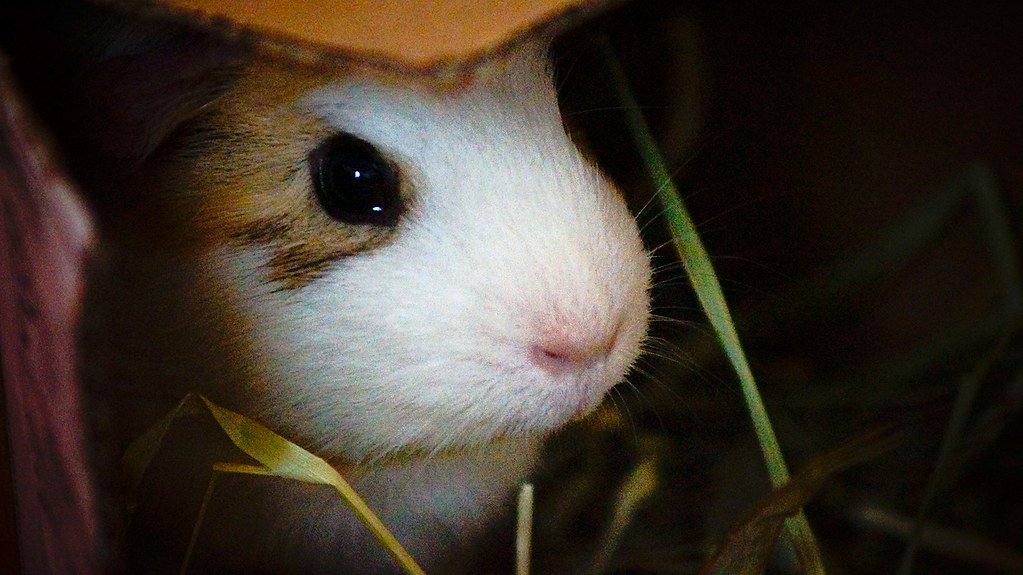
It’s normal for guinea pigs to enjoy a good hideout now and then, but if your piggy is spending most of the day tucked away and rarely coming out, it’s a big red flag. Guinea pigs are prey animals, so hiding is their instinctive reaction to fear or anxiety. Maybe you’ve noticed your furry friend darting behind their shelter every time you walk by, or refusing to come out even for veggies. This sudden shyness can mean their environment feels unsafe or overwhelming to them.
To help, try to pinpoint any recent changes. Did you bring home a new pet or rearrange their cage? Maybe there’s loud construction nearby. Offer extra hideouts, keep the noise down, and approach gently. Sometimes, just giving them more time and space to adjust can work wonders. Speak softly and offer treats from your hand to slowly rebuild trust.
2. Excessive Chewing on Cage Bars
Guinea pigs love to nibble, but constant chewing on their cage bars isn’t just a quirky habit—it’s often a cry for help. This repetitive behavior can signal boredom, anxiety, or frustration. Imagine being stuck in a room with nothing to do; you’d probably start chewing on the furniture, too! Excessive bar chewing can even lead to dental issues or injuries.
To ease this, enrich their environment with safe chew toys, tunnels, and plenty of hay. Make sure their cage is spacious and stimulating. Sometimes, a lonely guinea pig just needs a buddy, as they are social creatures. Regular playtime outside the cage can also make a huge difference for their well-being.
3. Loss of Appetite or Refusing Treats
A guinea pig that suddenly turns up its nose at favorite snacks is sending a clear SOS. Stress can cause them to lose interest in food, which is dangerous because guinea pigs need to eat constantly to stay healthy. If you notice uneaten pellets, untouched veggies, or a water bottle that never seems to empty, don’t ignore it.
Start by checking if anything has changed in their environment or routine. New foods, cage mates, or even unfamiliar smells can set them off. Offer them their favorite treats by hand, and try sitting quietly nearby to reassure them. If their appetite doesn’t return within a day, a vet visit is crucial, since stress can quickly lead to serious health problems in guinea pigs.
4. Aggressive or Unusual Behavior
Is your sweet piggy suddenly nipping at your hand, lunging at cage mates, or making angry sounds? Stress can turn even the gentlest guinea pig a little grumpy. Aggression is their way of saying, “Back off, I’m scared!” This might happen after a big change, like a move, new pet, or even a noisy visitor.
To help, keep their environment calm and predictable. Avoid introducing new animals or making big changes all at once. If you have more than one guinea pig, give them space to escape from each other and monitor their interactions closely. Sometimes, separating them for a short period and reintroducing them slowly can help soothe tempers and rebuild peace.
5. Over-Grooming or Hair Loss
If you spot bald patches or notice your guinea pig grooming obsessively, stress might be the culprit. Over-grooming is a common self-soothing behavior, but it can quickly lead to skin problems and infections. Think of it as the guinea pig version of biting your nails until they hurt.
Check their surroundings for sources of stress: loud noises, bullying cage mates, or a lack of hiding places. Make sure their cage is clean and cozy, with plenty of soft bedding. Offer gentle petting and spend quiet time together to reassure them. If hair loss continues, a vet should rule out other health issues.
6. Weight Loss or Sudden Weight Gain
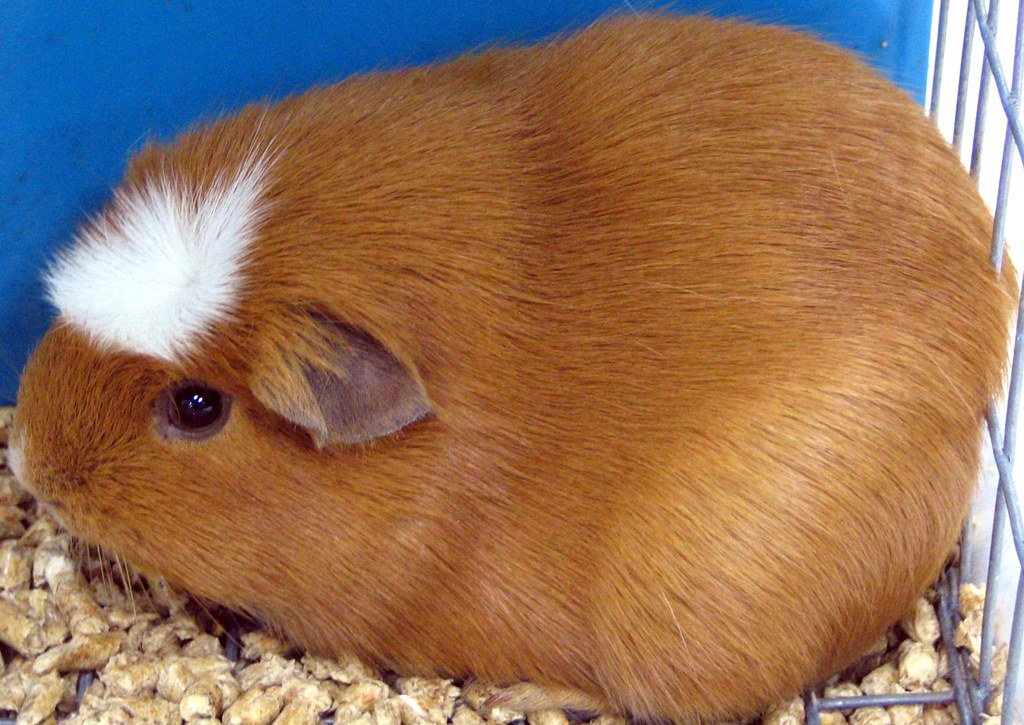
A stressed guinea pig can experience noticeable weight changes—either dropping pounds from not eating or overeating out of anxiety. Weighing your guinea pig weekly is a simple but powerful tool to catch problems early. Even small changes can be significant for such small creatures.
If you notice weight loss, check for hidden illness, dental pain, or a stressful environment. Conversely, if your piggy is gaining too much, it could be comfort eating due to boredom or stress. Adjust their diet accordingly, keep them active with toys and floor time, and always consult a vet if you’re unsure. Maintaining a steady, healthy weight is vital for their long-term happiness.
7. Unusual Noises: Teeth Chattering, Squealing, or Whining
Guinea pigs have a whole vocabulary of sounds, and when they’re stressed, you’ll often hear teeth chattering, high-pitched squeals, or constant whining. These noises are their way of expressing fear, discomfort, or frustration. If your usually quiet guinea pig starts “talking” in a worried tone, listen closely—they’re trying to tell you something.
Respond by observing what triggers the sounds. Is it a certain person, pet, or activity? Remove or reduce the stressor if possible. Soothe your piggy with soft words and gentle handling. Sometimes, just sitting quietly nearby can help them feel safer until they settle down again.
8. Freezing or Sudden Stillness
Have you ever seen your guinea pig stop dead in their tracks, hardly blinking? Freezing is a classic sign of fear or high anxiety. It’s their instinctive “play dead” response to perceived threats. While it can be cute at first, repeated freezing means they’re living in a state of constant stress.
Look for patterns: does it happen when you reach into the cage, or when there’s a loud noise? Create a peaceful environment by limiting sudden movements and loud sounds around their space. Approach them slowly and let them come to you. Providing more hiding spots can also help them feel secure enough to relax and move about freely.
9. Excessive Drinking or Not Drinking at All
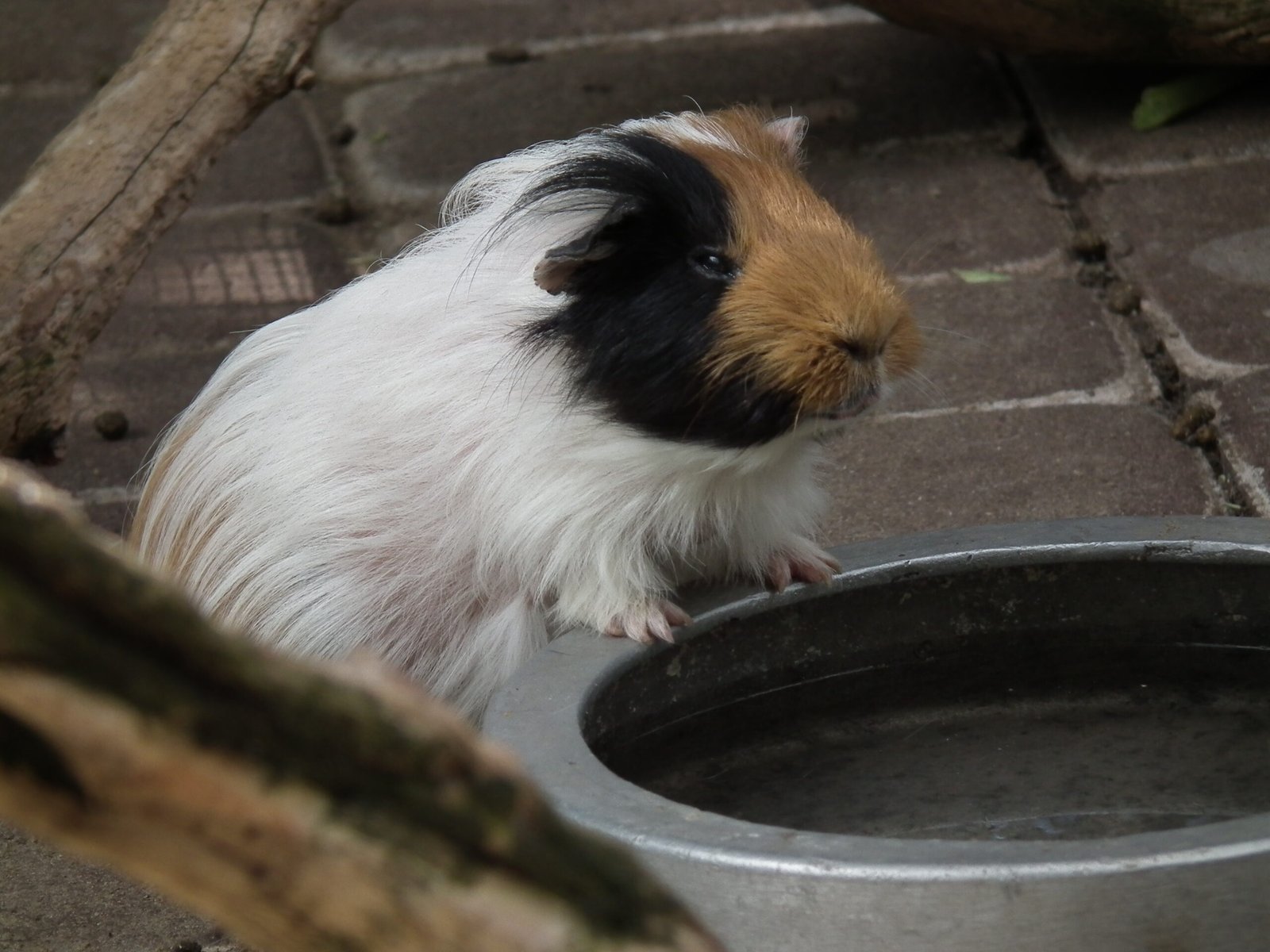
Pay attention to your guinea pig’s water bottle. Both excessive drinking and a lack of interest in water can be stress-related. Sometimes, a stressed guinea pig drinks more to comfort themselves, while others may stop drinking due to fear or depression. Either way, it’s a sign that something’s not right.
Monitor their water intake daily and look for other signs of stress. Make sure the water bottle is clean and easy to reach. Encourage hydration by offering watery veggies like cucumber or lettuce. If you notice ongoing changes, consult a vet to rule out underlying health concerns, as dehydration can become dangerous quickly.
10. Reluctance to Be Handled or Cuddled
A happy guinea pig will often enjoy gentle handling and cuddles, but if yours suddenly squirms, bites, or runs away, they might be feeling stressed. This could be due to rough handling, new environments, or simply feeling overwhelmed. Remember, every piggy has their own personality, and some are naturally shy.
To help, be patient and let your guinea pig set the pace. Use slow, calm movements and speak softly. Offer treats as positive reinforcement, and avoid picking them up unless necessary. Over time, most guinea pigs will regain their trust and confidence, especially if you respect their boundaries and offer plenty of love.
11. Lethargy or Sleeping More Than Usual
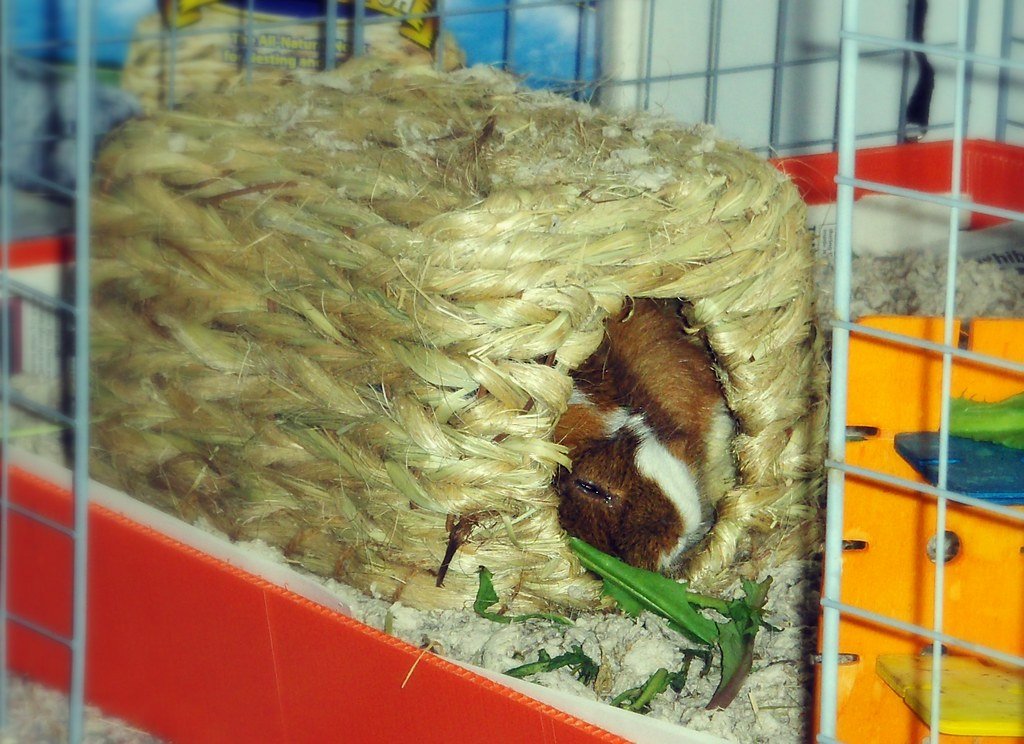
While guinea pigs enjoy naps throughout the day, excessive sleep or lack of enthusiasm for playtime can be a warning sign. Stress often drains their energy, leaving them listless and uninterested in their surroundings. You might find them lying in one spot for hours, barely reacting to your presence.
Encourage activity by creating a stimulating environment with tunnels, chew toys, and regular floor time. Keep their cage in a quiet area away from disturbances. If lethargy persists, get them checked by a vet to ensure it’s not a symptom of illness. A lively, curious guinea pig is a sign of good mental and physical health.
12. Digestive Issues: Diarrhea or Constipation
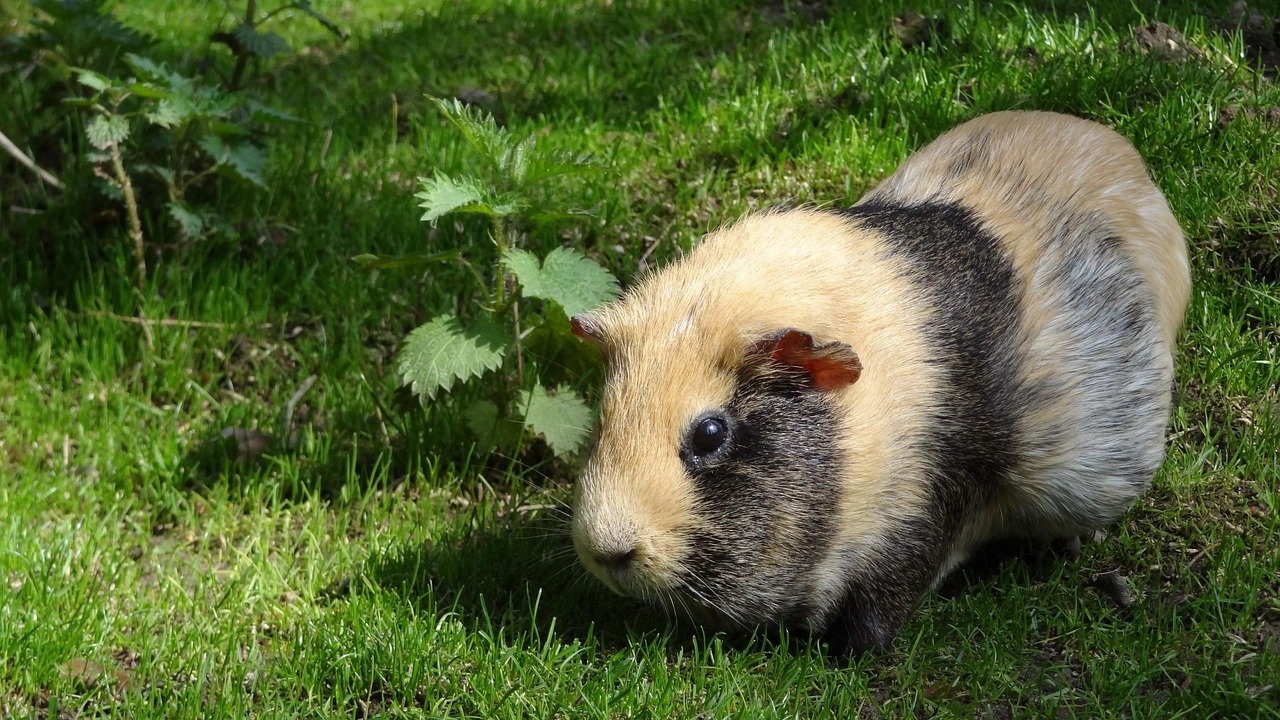
Stress can wreak havoc on a guinea pig’s sensitive digestive system. If you notice loose stools, diarrhea, or constipation, it could be their body’s way of reacting to emotional turmoil. Digestive issues can quickly become life-threatening for guinea pigs, so don’t ignore these signs.
Check their diet for sudden changes, and make sure they have constant access to fresh hay and clean water. Reduce stressors in their environment and maintain a calm routine. If digestive problems persist more than a day, seek veterinary advice immediately. A calm, happy guinea pig usually has healthy, regular droppings—a simple but vital sign to watch.
Understanding your guinea pig’s stress signals can make a world of difference in their happiness and health. These little companions may not bark or meow, but they’re always communicating—if you know what to look for. By creating a calm environment, offering routine, and giving them the social time they crave, you can turn their anxiety into comfort. In the end, a stress-free guinea pig is a much more playful and affectionate one—and that’s a win for both of you!





